Search
Remove Ads
Advertisement
Summary
Loading AI-generated summary based on World History Encyclopedia articles ...
Answers are generated by Perplexity AI drawing on articles from World History Encyclopedia. Please remember that artificial intelligence can make mistakes. For more detailed information, please read the source articles
Search Results

Definition
State of Nature
The state of nature is an idea which became especially popular with certain philosophers during the Enlightenment, notably Thomas Hobbes (1588-1679), John Locke (1632-1704), and Jean-Jacques Rousseau (1712-1778). It refers to a state of existence...
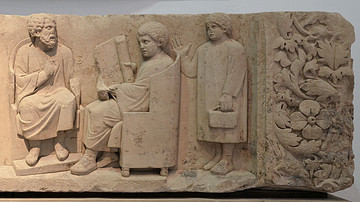
Article
Teaching From Home: Free Resources for Teachers and Parents
Schools are closed in most countries and everyone has to adapt to a new reality of online learning. It is not easy for students, teachers and parents alike. Learning and teaching from home require a different approach. Ancient History...

Article
France’s 1905 Law of Separation of Church and State
The 1905 Law of Separation of Church and State was enacted as the climax of decades of conflict between monarchists and anticlerical Republicans who viewed Christianity as a permanent obstacle to the social development of the Republic. The...
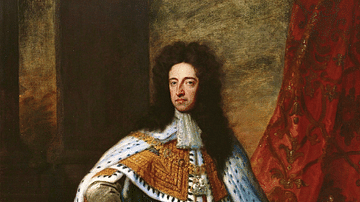
Definition
William III of England
William III of England (also William II of Scotland, r. 1689-1702) became king of England, Scotland, and Ireland after the Glorious Revolution of 1688. Protestant William, Prince of Orange, was invited to rule jointly with his wife Mary II...
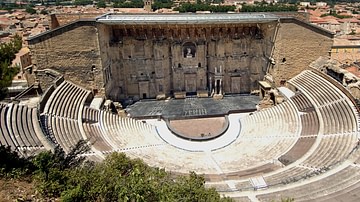
Article
The Roman Theatre of Orange
The Roman theatre of ancient Arausio (modern day Orange in southern France) is one of the best-preserved examples from antiquity. Built in the 1st century CE, it once had capacity for 9,000 spectators and is dominated by its massive stage...
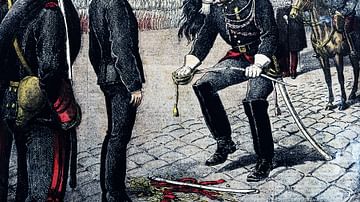
Article
The Dreyfus Affair & the Separation of Church and State in France
The Dreyfus Affair, or L'Affaire as it has become known, demonstrated the competing forces at work to either reestablish the monarchy and the Church in power or to solidify and advance the unfulfilled ideals of the 1789 French Revolution...
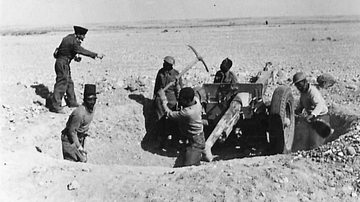
Image
Free French Troops, Bir Hakeim
A photograph showing Free French troops digging an artillery emplacement at Bir Hakeim, Libya prior to the battle of Gazala in June 1942. (Imperial War Museums)
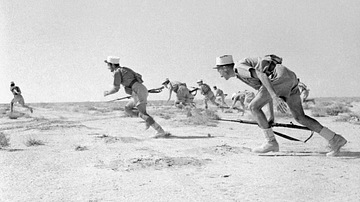
Article
Battle of Bir Hakeim
The defence by Free French forces of the remote desert watering hole of Bir Hakeim (Hacheim) in Libya, North Africa in May-June 1942 during the Second World War (1939-45) is one of the most heroic episodes in French military history. Although...
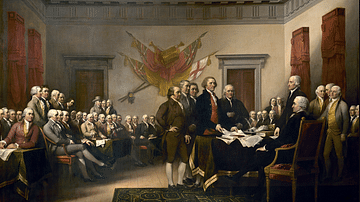
Definition
Social Contract
The social contract is an idea in philosophy that at some real or hypothetical point in the past, humans left the state of nature to join together and form societies by mutually agreeing which rights they would enjoy and how they would be...

Article
Battle of Fleurus
The Battle of Fleurus (26 June 1794) was the climax of the Flanders Campaign of 1792-95 and was one of the most decisive battles in the War of the First Coalition (1792-1797). A French victory, Fleurus ensured French ascendency for the rest...